Liu challenges university leaders
Updated: 2015-06-23 11:35
By MAY ZHOU and CHANG JUN in Houston(chinadaily.com.cn)
|
||||||||
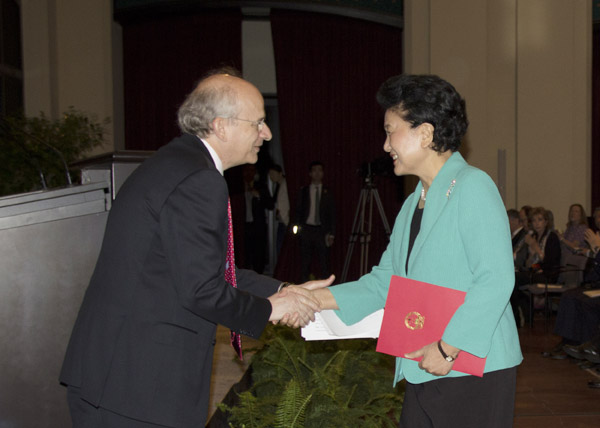 |
|
Rice University President David Leebron (left) welcomes Chinese Vice-Premier Liu Yandong to make the keynote address to the US-China University Presidents Roundtable at Rice University in Houston on Monday. MAY ZHOU/CHINA DAILY |
The presidents and chancellors of more than 50 major US and Chinese universities met at Rice University in Houston for the US-China University Presidents Roundtable.
They discussed global education, research collaboration and cultural exchange. The topics addressed during the closed roundtable sessions included the value of a liberal arts education, new frontiers for research collaboration and ways to improve higher education cooperation between the US and China.
Liu praised the university presidents and chancellors coming together to share their experiences and discuss cooperation, calling it "an important component of people-to-people exchange between the US and China".
"Universities have been the pioneer in people-to-people exchange," Liu said. "In the 1970s, it was exactly due to the suggestions to President Nixon from visionary scholars, that the US government adjusted their policy toward China, (which) played an important role in opening the door for the US and China diplomacy."
The relationship started the largest overseas study trend in the history of China, Liu said. She detailed the achievement with some numbers: 3.5 million Chinese students have studied abroad, of whom 1.46 million went to the US.
Now, there are 1,116 cooperating institutions and programs between the US and China, and one third of those were established in the last three years.
Liu said that there are more than 7,000 universities in China and the US with more than 50 million students. She then posed three challenges to the present university presidents:
"First, I hope that universities in both nations will deepen the cooperation and exchanges in nurturing talents, science research and social service. Second, I hope that you will provide a more powerful intellectual foundation to realize win-win cooperation between the two nations. Thirdly, I hope you would find ways to improve young people's cross-culture communication capabilities."
In response to Liu's challenge, New York University President John Sexton said: "We surely appreciate your effort to encourage us to try new ways, not just do more of the old."
Sexton said that NYU Shanghai is flowering. He taught at NYU Shanghai the past semester and said, "I can tell you that this program is working." Sexton said that at the school, students from China and other parts of the world grow together and build a relationship that stays with them.
Tsinghua University President Qiu Yong said that his school has benefited greatly from the cooperation between the US and China, and now Tsinghua is pushing for a tenure track system similar to that in the US.
Qiu also mentioned the Global Innovation Exchange (GIX), a tech graduate school created by Tsinghua, the University of Washington and Microsoft as a primary example of how far the cooperation has been advanced between the two nations, calling it the trend for the future.
GIX marks the first time that a Chinese research institution has established a physical location in the US, a reciprocal example of NYU Shanghai.
Rice President David Leebron welcomed Liu's challenge, calling it a "wonderful framework. Nurturing a spirit of humanity among our students, developing a shared sense of destiny, leading us to understand each other better, to see each other's problems not as the problems of others but our own problems – these seem to be the framework of ideas you put forward. The inspiration you provided has reaffirmed the role of our universities," Leebron said.
In a prior news release, Leebron said, "We have significantly expanded Rice's international outreach to China as part of our Vision for the Second Century, and it is indeed an honor to host the US-China University Presidents Roundtable and the highest-ranking Chinese official to ever visit our campus."
Lin Jianhua, president of Peking University, said that due to the rapid development of technology, the world is becoming closer and smaller; the cooperation in the two nations has shifted from personnel exchange to institutional cooperation, and often China and US are facing the same challenges now.
Zhang Rong, president of Shandong University, agreed with the vice-premier on her proposed larger role that universities should play within the People to People Exchange framework.
"High-level academic institutions in China should set a worldly vision on scholarly exchanges, and students and faculty collaborations with their US counterparts," Zhang said. "The pursuit for truth, shouldering social responsibility and preparing young leaders for years to come should be the key tasks of any universities in the world."
Contact the writers at mayzhou@chinadailyusa.com and junechang@chinadailyusa.com

 Ten photos you don't wanna miss - June 23
Ten photos you don't wanna miss - June 23
 The world in photos: June 15-21
The world in photos: June 15-21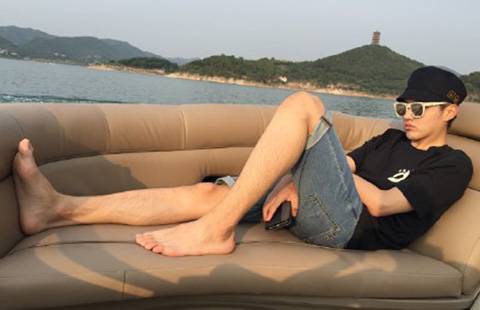
 Kris Wu's long legs trigger envy
Kris Wu's long legs trigger envy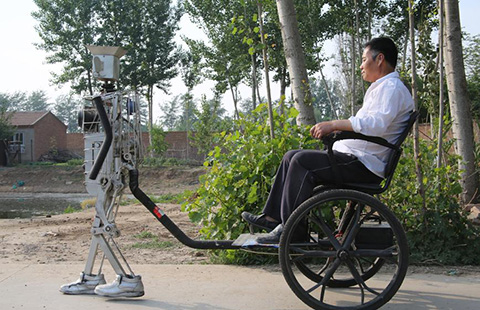
 School dropout farmer creates robots
School dropout farmer creates robots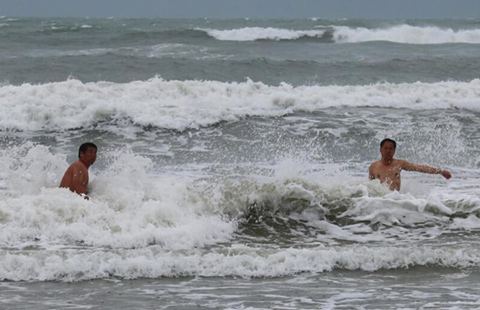
 Typhoon Kujira makes landfall in S China
Typhoon Kujira makes landfall in S China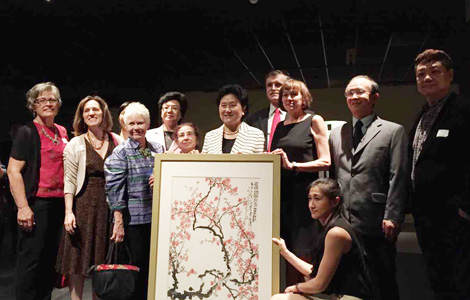
 Liu visits Houston Museum of Natural Science
Liu visits Houston Museum of Natural Science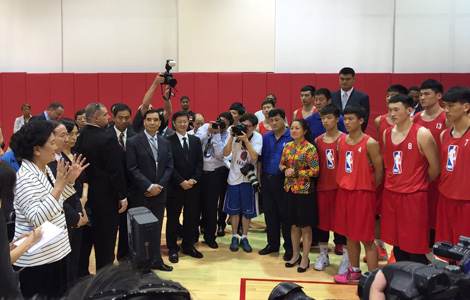
 Liu meets Tsinghua Youth team in Houston
Liu meets Tsinghua Youth team in Houston
 Men get into women's shoes for fun
Men get into women's shoes for fun
Most Viewed
Editor's Picks

|

|

|

|

|

|
Today's Top News
Liu challenges university leaders
10 chosen for Eisenhower fellowships
China unveils plans for V-Day parade
China-US talks to explore ways to make Xi's visit a success
Chinese consumers play big part in Apple's designs: Cook
Obama says US not cured of racism
Liu Yandong plays basketball diplomacy
Wang Yang hails S&ED
US Weekly

|

|






